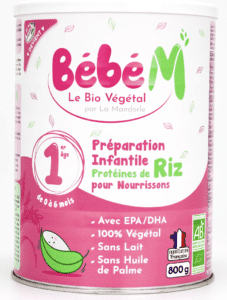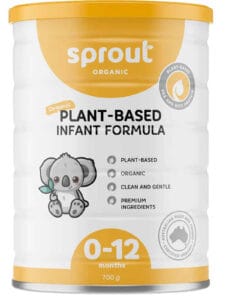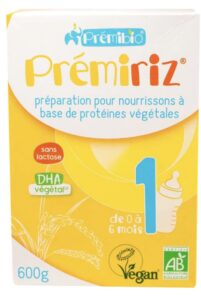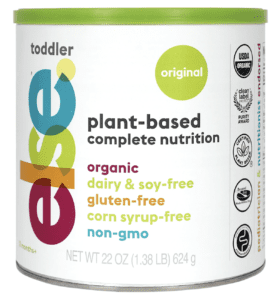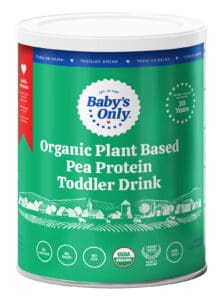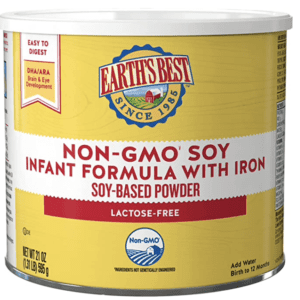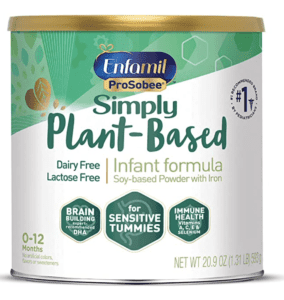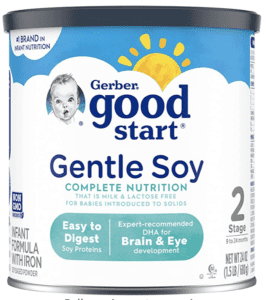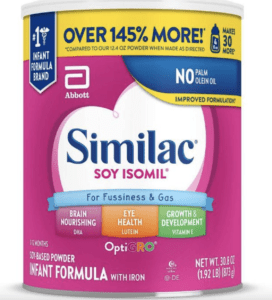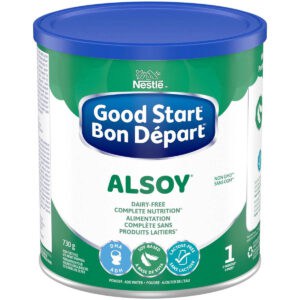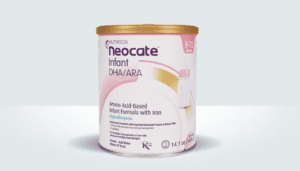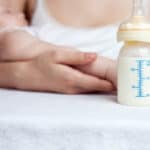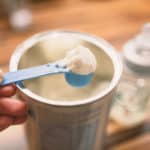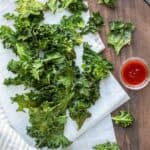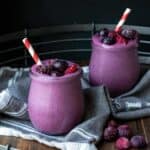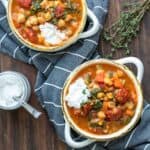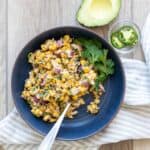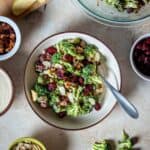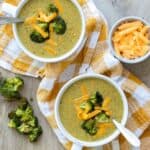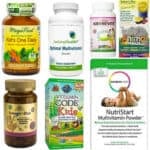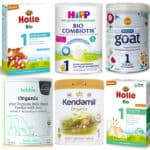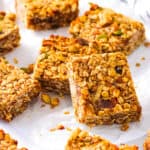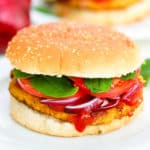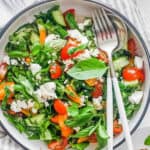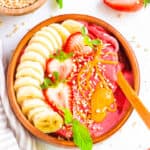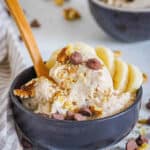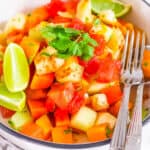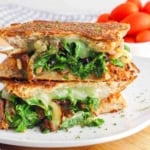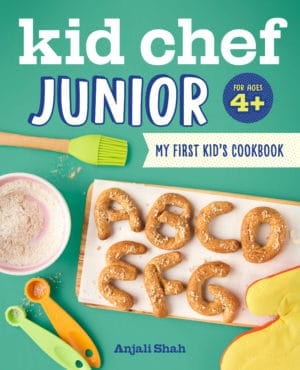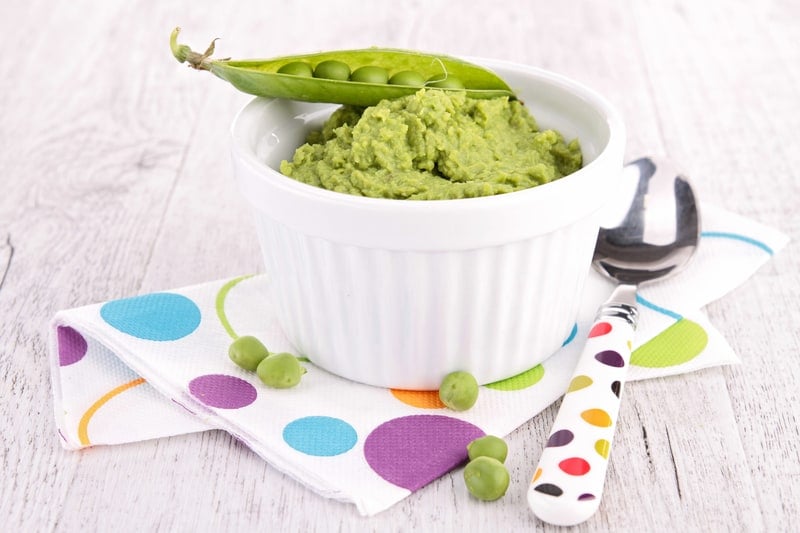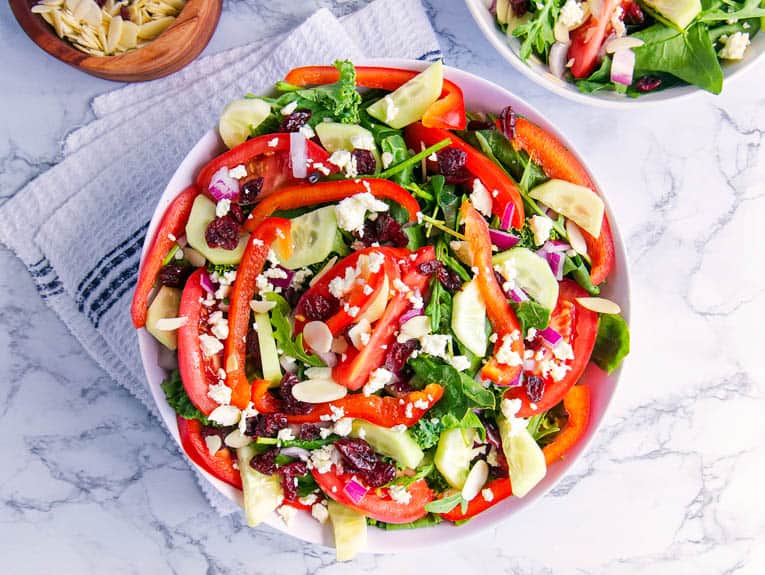Best Vegan & Plant Based Formula (2024 Guide)
This post may contain affiliate links. As an Amazon Associate, I earn from qualifying purchases. Please read my disclosure.If you’re a new parent, you know that breast milk or formula is going to be your baby’s primary source of nutrition during the first 12 months of their life. But if you’re a vegan parent and want to raise your baby vegan, and you can’t (or don’t want to) breastfeed, what plant-based or vegan formula options are out there for you?
That’s where this guide comes in! We are going to break down the best vegan baby formula options available on the market today. You’ll learn the pros and cons of each, as well as tips to help you choose the best formula for your baby!
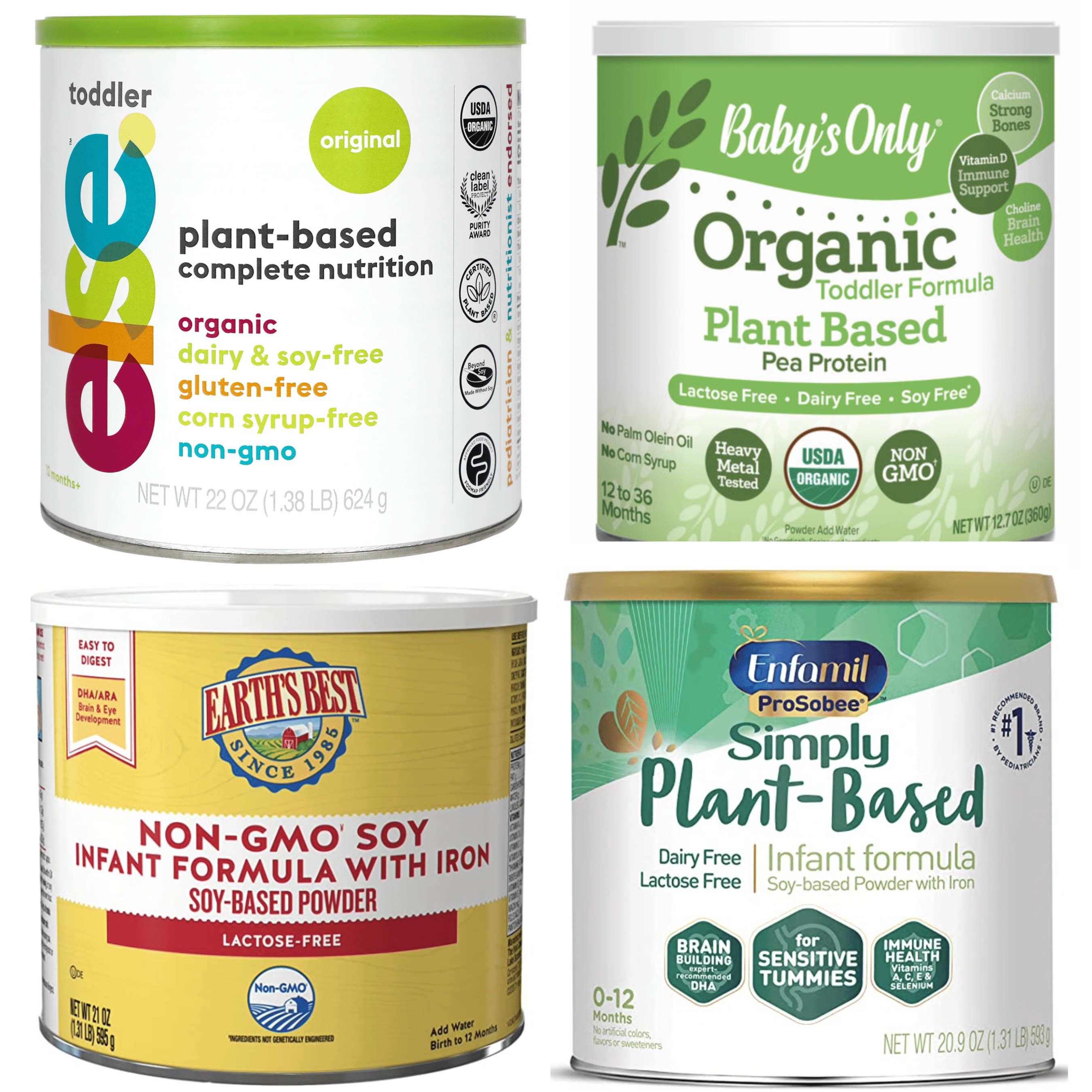
Baby formula is a breast milk substitute designed to feed children during their first year of life. While most regular and organic infant formula is made from cow’s milk, there are plenty of non-dairy options available to accommodate milk allergies, vegan families, lactose intolerance, and any other reason why dairy may not be an option for your baby.
Whether you’re raising a vegan baby, you’re looking for a more eco-friendly formula, or your baby simply can’t tolerate dairy because of a diagnosed cow’s milk allergy or sensitivity, you might be wondering whether dairy-free or plant-based infant formulas might work for your baby. Luckily, there are quite a few options to choose from, depending on your needs.
So, if you’re in the market for the best vegan baby formula, this guide is for you! I’ve researched so you don’t have to — what to look for in a vegan or plant-based formula for babies, how the different types of plant-based and vegan formulas differ, the best vegan, dairy-free, and plant-based baby formula options on the market that are available for purchase in the US, and more. Let’s go!
But First, A Quick Disclaimer
Some of the items below were given to me by the manufacturer to review or as part of an affiliate program. I may receive a commission (at no extra expense to you) if you purchase through the links provided. I only recommend products I’ve evaluated, I believe are the highest quality, and that can do the most to help you and your family. By purchasing any of these products from the links below, you help keep this blog running, so thanks for your support!
Keep in mind that every person & situation is different, especially yours, so make sure to talk to your doctor and see how these guidelines and tips can help you. These tips are not a substitute for professional medical advice, diagnosis, or treatment. Never disregard or delay in seeking professional medical advice because of something you read here!
My recommendations are based on the manufacturer’s claims and ingredients list, and what I feel best giving to my own family. Your results may be different based on your overall diet, exercise, age, weight, family history, or pre-existing conditions.
What Is Vegan Baby Formula?
So, what is vegan baby formula? It is a formula that is made from a plant-based source and does not contain animal ingredients, animal products, or animal byproducts.
Whereas most traditional formulas are made with cow’s milk or goat milk, most plant-based or vegan formula for infants is made with soy, rice, or pea protein base. Because of the non-dairy base and lack of animal sources or products, vegan and plant-based formula is also suitable for dairy-free and vegetarian diets as well.
Is It Okay For A Baby To Be Vegan?
Vegan diets omit any animal-based food products, including both eggs and dairy, which can pose a unique risk for rapidly growing babies. However, in the first year of life, you can ensure a healthy vegan diet for your newborn either by breastfeeding and offering supplemental Vitamin D3 and B12 or by offering a soy-based formula that is recommended by your pediatrician (source).
Because vegan and vegetarian diets can be low in calories and certain nutrients, many experts recommend that toddlers over 12 months of age are breastfed until 2 years old to ensure that they are receiving adequate nutrition (source).
Does Vegan Or Plant-Based Baby Formula Have Complete Nutrition For My Baby?
Yes, vegan infant formula, along with all other formulas, is required by the FDA to be a complete source of nutrition for your baby. All formula that is FDA-approved to be sold in the United States meets this government body’s regulatory standards, such as being a complete nutrition for your infant (from 0-12 months), needing at least 30 nutrients in particular amounts, and being made with ingredients that are verified to be safe for infant consumption (source).
Just as cow’s milk-based formula or goat’s milk formula are modified and enhanced to be complete sources of nutrition for babies, vegan or plant-based proteins are too. Therefore, all products that are approved by the FDA are a complete source of nutrition for babies who are under 12 months of age.
What Is The Difference Between Vegan Formula, Plant-Based Formula, And Dairy-Free Formula?
There are slight differences between vegan baby formula, plant-based infant formula, and dairy-free infant formula. They are as follows:
- Dairy-Free Formula: This is a non-milk-based formula that is made without any dairy products, such as milk or goat milk, but still may contain other animal products or animal byproducts, such as animal-derived vitamin D3 or DHA derived from fish oil. Note: a dairy-free formula that is made with dish oil-derived DHA is not considered to be vegan or vegetarian-friendly.
- Plant-Based Formula: Any formulas that are labeled as plant-based are made with plant-derived proteins – such as soy, rice, or pea protein – but still may contain small amounts of animal-derived ingredients, such as Vitamin D3.
- Vegan Formula: Choose this formula for an option that is made with plant-derived proteins but also doesn’t contain any animal-derived ingredients. Note that some truly vegan products are more expensive, as it can be more difficult or expensive to source or create vegan versions of vitamin D3, plant-derived DHA, and other vegan-friendly formula vitamins and ingredients.
Given the difference in these three different categories, it is important to do your research and read the labeling on the baby formula cans carefully depending on which type of vegan, plant-based, or dairy-free baby formula you are looking for or considering.
What Feeding Options Are Available For Vegan Babies?
When considering how to feed your baby, it is a good idea to look at all of the vegan baby feeding options! Here are healthy vegan-friendly ways you can choose to feed your baby:
- Breast Milk: Breastfeeding is a great option for vegan infants and vegan parents. Breast milk is full of vitamins, prebiotics, healthy fats, and more that are essential for your baby’s growth and developmental needs. Many pediatricians agree if that breastfeeding is possible for you it is better for your baby than formula feeding (source). If you are vegan, your breast milk is considered vegan, since breast milk is made from the foods you eat!
- Donor Breast Milk: If you can’t breastfeed yourself, you can opt to feed your baby with donated breast milk from a vegan mother. Check out the Human Milk Banking Association of Northern America to find a local milk donor.
- Soy Baby Formula: Soy milk contains essential nutrients for healthy development and growth, and most non-dairy infant formula brands will use a soy protein isolate and amino acid base instead of dairy. Note: if you’re wondering whether soy-based baby formulas are healthy, check out my section on this section below.
- Pea Protein Baby Formula: Baby’s Only is the only non-milk-based baby formula that uses pea protein as its base. It is technically a toddler formula, so if your baby is under 12 months of age you will want to consult with your pediatrician before feeding it to your little one.
- Rice Formulas: Bebe M is one of the 100% vegan infant formulas that is made with hydrolyzed rice, producing a protein base that is safe for vegan or lactose intolerant babies to consume.
- Oat Milk: Oat milk is a great option for toddlers but is not nutritionally complete enough to feed to your infant. There isn’t currently an oat milk-based infant formula for parents who are looking for non-soy alternatives, but there is an oat milk toddler formula, Tally, for babies and toddlers who are older than 12 months.
- Almond Milk: There is currently just one organic vegan toddler formula that uses almonds as the base (Else Nutrition). It is not formulated for ages 0-12 months, so if you are interested in feeding this to your baby, consult your pediatrician before doing so. On its own, almond milk is not the best protein source, but it is super low in calories and is often fortified with nutrients. It should not be given to babies under 12 months of age, similar to oat milk. If you do purchase almond milk for your toddler, make sure it is unsweetened and does not contain carrageenan.
- Coconut Milk: I have not found a great vegan formula milk option that uses coconut milk as its base, likely because it does not naturally contain many nutrients other than dietary fat, making it less than ideal for your baby’s diet. Toddlers and kids can enjoy unsweetened coconut milk occasionally, but it won’t be a major source of nutrients, similar to almond milk.
Note: For more information on toddler formulas, check out my list of the best toddler formulas!
Vitamin D In Infant Formula – Is It Vegan?
Most non-milk baby formulas are not 100 percent vegan, as they still contain Vitamin D3, which is made using lanolin from sheep’s wool. You can make Vitamin D3 from vegan sources, such as lichen or mushrooms, but this form tends to be much more difficult to source or expensive to extract. Furthermore, vitamin D2 is vegan-friendly but it is not as readily absorbed in digestion as D3 is. Because of this, most formula brands will use the lanolin-derived form of Vitamin D3.
Vitamin D is an essential nutrient needed for healthy development, as it plays a role in immune system development, healthy bones & teeth, and brain development. Because of this, formula brands can’t just omit the vitamin when creating vegan baby formulas, so another solution has to be found. Often, companies will continue using vitamin D3 and label and market the product as plant-based instead of vegan.
Another option is to source the vegan D3 and produce a truly vegan formula. Globally there are currently only three truly vegan baby formulas that don’t contain animal-derived D3 or any other animal by-products: Bebe M Infant Formula, Sprout Organic’s Infant Formula, and Premibio Organic Vegan Baby Formula. Bebe M is manufactured in Europe and Sprout Organic is produced in Australia. Both formulas are available to ship to the US. Click here to order Bebe M online; click here to order Sprout Organic online, and click here to order Premibio.
In the United States, there is currently only one organic soy-free vegan baby formula – but it’s meant for babies aged 12+ months, Else Plant-Based Toddler Formula. If you are considering this option for your baby who is younger than 1 year, check with your pediatrician to determine whether this formula is suitable for them.
All four of these options, because they are 100% vegan and contain the vegan-derived D3, are more expensive vegan formulas. If you need to work within a budget, you may want to consider a plant-based formula for your infant, as they contain minimal animal-derived ingredients and are made with plant-based milk alternatives. After the first year, you can then transition your baby to an entirely vegan diet with food and toddler formula, if desired or as recommended by your pediatrician.
Is Soy-Based Baby Formula Safe To Use?
When considering formula options, many parents wonder if a vegan and plant-based formula is good for babies. As with most questions you’ll have to answer as a parent, whether or not you choose to use vegan, plant-based, or dairy-free baby formula is one that you will want to consult your pediatrician for but is ultimately up to you and your baby’s needs.
When it comes to considering a vegan diet for your baby, it will take a lot more diligence to ensure that they are getting the nutrients they need for their extremely rapid growth rate. If done right, however, a vegan diet is completely safe. All of the vegan and plant-based soy formulas on this list are approved by the FDA or the European Union’s European Food Safety Authority (EFSA) and are regulated to make sure that they have the nutrients that your child needs. So, as long as it’s okayed by your pediatrician, feeding your baby plant-based formula and keeping them on a plant-based diet when they transition to solid foods is a perfectly healthy option.
In terms of soy-based baby formula brands specifically, the main concern with soy is due to the phytoestrogens (aka isoflavones) that are naturally present in soy. They are said to have an “estrogenic effect” because they’re similar in structure to the hormone estrogen. Babies who drink soy formula will be consuming much larger quantities of these isoflavones than babies who don’t drink soy-based formulas.
So it’s natural to wonder whether these isoflavones might have a negative hormonal impact on babies who are consuming so much during their most critical development period. There has been some research done on this, and the conclusion was that soy formula during infancy didn’t have a discernible impact on babies’ hormone levels later in life.
The American Academy of Pediatrics also says that soy formula is perfectly safe for full-term babies with a milk allergy or lactose intolerance (source), though soy-based formula is not recommended for preterm infants (source). The safety and health of soy formula on full-term infants have been studied extensively and it appears to be safe from a neuro-developmental perspective (source).
Additionally, there are no clear negative effects regarding an infant’s sexual development and growth (source). There can be concerns with soy as an allergen, however, so always check with your pediatrician before starting a soy-based formula, and monitor your child for any symptoms of a soy allergy.
Aside from this, one of my biggest issues with soy is that most soy is genetically modified, so if you do decide to choose a soy formula, make sure you’re choosing an organic or non-GMO formula to ensure the soy is not genetically modified!
Do Vegan Babies Need Supplements?
The two most important supplements for vegan babies are vitamin D3 and vitamin B12 (source). If you are choosing one of the vegan or plant-based formulas on this list it will be supplemented with vitamin D3 and B12. If you choose to breastfeed, however, you will need to supplement with both of the vitamins. Liquid drops are the best bet for babies as they are easy to administer and for the baby to ingest; here is my favorite brand of vitamin D drops. Unfortunately, I have not found a good brand of a vitamin B12 supplement for infants, but I do love this brand of vitamin B12 drops for toddlers.
Where Do You Buy Vegan Or Plant-Based Baby Formula?
As I mentioned, there is not a 100 percent vegan baby formula that is manufactured in the United States, though there is a 100 percent vegan toddler formula available. The only organic vegan formula for babies that I’ve found are made in Europe (Bebe M Infant Formula) or Australia (Sprout Organic’s Infant Formula), though you can purchase both online.
If you’re looking for a plant-based formula or non-cow’s milk formula that you can purchase in the grocery store, there are quite a few options available in most large grocery stores and Target. Typically, you can find them with other baby products or in the vegan foods section.
Depending on if you want to choose a vegan or plant-based formula, here are your options when choosing a vegan baby formula in the US:
- Ask your pediatrician if Bebe M is suitable for your baby and if so, order it here.
- If your pediatrician does not recommend Bebe M, ask your pediatrician if Else Nutrition is suitable for your baby, since it’s the only vegan formula available for sale in the US.
- If your pediatrician does not recommend Bebe M or Else, choose another plant-based formula that uses lanolin-derived Vitamin D (below are my best recommendations!), but all of the other ingredients are vegan-friendly. Below I share my best recommendations.
What Should You Look For in a Vegan, Plant-Based, or Dairy-Free Formula?
Looking to buy your little one a non-dairy formula? Here’s what you should look for:
- Ideally organic (or at least non-GMO). The best organic baby formulas adhere to the highest standards of food processing and are made with organic ingredients so it’s guaranteed to be the healthiest option for your baby.
- Iron-fortified. Some babies don’t have enough natural reserves of iron, so it’s always a great idea to feed babies iron-fortified formulas if they are not being breastfed.
- Docosahexaenoic acids (DHA). These omega-3 fatty acids are naturally found in breast milk. Because DHA is believed to be crucial for healthy brain and eye development (source), it is always good to look for when choosing a baby formula. Furthermore, look for natural and vegan-friendly DHA that is not extracted with hexane whenever possible (that is, DHA that is extracted from algae); many synthetic forms of it are often found in non-dairy formulas.
- No added sugars. In an ideal world, there would be minimal added sugars in plant-based baby formula. There are a few soy-based formula brands that don’t add syrup solids to their formulas, though this can be a harder one to avoid when shopping for vegan formulas because formula makers can’t use lactose (which is the naturally occurring sugar in milk) for a carbohydrate source. Because of this, these brands will need to replace the lactose with another carbohydrate, such as sugar, to ensure the right balance of nutrients in the formula.
A Note On Maltodextrin And Corn Syrup:
For dairy-based formulas, I usually recommend against the addition of maltodextrin, as it can be added in as a substitute for naturally occurring and more beneficial lactose (source).
When concerning dairy-free and plant-based formulas, however, your options for carbohydrates are more limited, and in that case, maltodextrin can be an okay carbohydrate to use. It’s better than processed sugars and glucose syrup solids and meets the nutritional requirements for carbohydrates in baby formula when dairy-derived lactose is not an option. Maltodextrin is an easy-to-digest, complex carbohydrate that is lactose-intolerant friendly.
When it comes to corn syrup, you may also see that it is a common substitution for lactose in dairy-free formulas. I don’t recommend it, since it is just added simple sugars, and I would recommend choosing formulas that are free of syrup solids and corn syrup. But, corn syrup is an easily digestible carbohydrate that is recognized by the Food and Drug Administration (FDA) as a safe ingredient. This is why it commonly replaces lactose in non-dairy baby formulas.
What Ingredients Should You Avoid In Baby Formula?
When it comes to non-milk-based baby formula, there are sneaky yet common ingredients that you should avoid. Casein, diacetyl, lactoglobulin, lactalbumin, Lacto acidophilus, lactoferrin, lactose, lactulose, rennet, and whey all come from milk, so keep that in mind if your baby has a milk allergy.
Other things you will want to avoid are added sugars, corn syrup or glucose syrup solids, gluten or wheat, phytin, and GMOs.
Best Vegan, Plant-Based, And Dairy-Free Baby Formulas
Even though it’s slightly more challenging to find, there are good formulas for vegan diets out there! Here are my top picks for the best non-dairy baby formula brands for your little ones:
Bebe M Organic Rice-Based Infant Formula
Bebe M (Bebe Mandorle) Organic Rice-Based Infant Formula is a French formula that is the only vegan organic infant formula that I’ve found that’s 100% organic and suitable from birth until 12 months of age. Stage 1 is from 0-6 months, Stage 2 from 6-9 months, Stage 3 from 10 months – 3 years of age!
This is the best vegan and plant-based baby formula because it uses 100% plant-based ingredients that are tightly regulated by the EU and it is designed to meet the nutritional requirements of babies. It is made from an organic rice protein hydrolysate and organic coconut oil, almond oil, and rapeseed oil. It isf a dairy-free and soy-free formula that’s 100% vegan-friendly. It is suitable for babies with dairy allergies, lactose intolerance, and many other common allergens. It does not contain palm oil (Learn more: Palm Oil In Baby Formula).
Note: This product is labeled as “Foods for special medical purposes (FSMPs)” and should be only given under medical supervision. Please consult your pediatrician before introducing the formula to your baby.
- Cost: $64.99 for a 600g (21.16 oz) can
- Where to buy it: Online suppliers
Note: This product is labeled as “Foods for special medical purposes (FSMPs)” and should be only given under medical supervision. Please consult your pediatrician before introducing the formula to your baby.
Pros
Cons
Sprout Organic Vegan Baby Formula
Sprout Organic vegan infant formula is the world’s first certified organic vegan baby formula. It is made in Australia with a rice protein and pea protein base, making it soy-free, lactose-free, and gentle on digestion.
This vegan baby milk formula is good for babies aged 0-12 months. It is made with plant-based DHA and ARA as well as plant-based vitamin D2. This form of vitamin D is not as readily absorbed by the body but still meets the Australian guidelines for baby formula. If you are wondering if this form of vitamin D is adequate for your baby, speak with your doctor to determine if you should supplement with vitamin D drops.
The formula comes in cans and in pouches, the latter of which some parents report is easier for on-the-go bottle preparation.
- Cost: $39.95 for a 700g (or 24.7 oz) can
- Where to buy it: Online on the Sprout Organic website.
Pros
Cons
Premibio Organic Vegan Baby Formula
This French baby formula is 100% vegan and organic. It is made according to the strict regulations of the European Union’s European Food Safety Authority (EFSA), so is made with the highest quality ingredients.
Though the dairy-free and lactose-free formula is made with corn-derived maltodextrin, it is organic maltodextrin that is made from organic corn grown in the EU. Hydrolyzed rice protein is the main protein in the formula, making it soy-free and a good option for any infants who have difficulty digesting animal proteins. The formula is also made with vegan vitamin D3 and plant-based DHA, making it free of any animal-derived ingredients.
Premibio organic vegan comes in three different stages: Stage 1 (0+ months), Stage 2 (6-12 months), and Stage 3 (12+ months).
- Cost: $48.99 for a 600g (or a 21.2 oz can)
- Where to buy it: Online suppliers.
Pros
Cons
Else Nutrition Vegan Baby Formula
This plant-based, complete nutrition formula for toddlers is jam-packed with protein, vitamins, and other key minerals. It is made with an almond base. This is my top pick for a dairy-free toddler formula, because it’s organic, has a high-quality ingredients list, and is the only 100% vegan formula available (even the Vitamin D is vegan!).
Furthermore, this formula is certified USDA organic, Clean Label Project Purity certified, and contains no lactose. Else just released a new version of their formula that has added omega fatty acids as well!
- Cost: $34.99 for a 22 oz can ($33 for a 22 oz can for monthly subscriptions)
- Where to buy it: Online on Else’s website or Amazon.
Pros
Cons
Baby’s Only Organic Pea Protein Formula
This pea-protein formula doesn’t have any soy protein or soy phytoestrogens, making it one of the best non-dairy formulas for babies. This dairy-free organic formula is intended for toddlers over 12 months of age so you will want to consult your pediatrician before feeding it to your infant.
Baby’s Only adheres to the highest standards by sourcing only the best and cleanest organic materials.
- Cost: $17.99 for one 12.7oz can ($14.39 per 12.7 oz can for monthly subscriptions.
- Where to buy it: Online on Baby’s Only website.
Pros
Cons
Earth’s Best Organic Soy Based Formula
This soy milk-based formula is a terrific non-dairy baby formula option. While it’s not technically organic, it is non-GMO which makes it the best dairy-free formulas available in the US today (as it is formulated for babies aged 0 months and up!). It is lactose-free, non-GMO, kosher certified and contains DHA and ARA, though the DHA and vitamin D3 are likely not from vegan-friendly sources.
- Cost: $39.99 for a 21 oz can
- Where to buy it: Online on Earth’s Best’s website, Walmart, Sprouts Farmers Market, or other health stores.
Pros
Cons
Enfamil ProSobee Soy Sensitive
Enfamil ProSobee infant formula is a soy-based formula that is plant-based and non-dairy. It comes in liquid, concentrate, or powder form and is generally easy to find and in stock in the United States.
If you are wondering if Enfamil plant-based is good for babies, here is the scoop: Enfamil is the number one pediatrician-recommended formula brand in the United States, however, this formula contains GMOs and is not organic. Though the lactose-free formula is safe for kosher diets, it is not vegan-friendly. It does contain DHA and helps reduce fussiness and gas, however.
- Cost: $38.99 for 20.9 oz can; $11.99 for a 32 fl oz bottle; $7.99 for a 13 oz concentrate bottle
- Where to buy it: Online on Enfamil’s website, at Target or Walmart, or on Amazon.
Pros
Cons
Gerber Good Start Soy Infant and Toddler Formula
There are two stages of Gerber Good Start Soy Formula: an infant version and a toddler version. Both versions of the formula are made with soy proteins that ease digestion for tiny tummies that are lactose or dairy-intolerant.
This Gerber formula is easy to find and is often readily available for sale in the US. It does contain maltodextrin, sucrose, and a large percentage of vegetable oils, but has added DHA and ARA.
- Cost: Just under $20 for a 24oz can
- Where to buy it: Online on Gerber’s website or Amazon, or at Target or Walmart stores.
Pros
Cons
Similac Soy Isomil Baby Formula
Similac Soy Isomil formula is an easy-to-find and budget-friendly formula. It is derived from soy beans for easy-to-digest baby formula, making it dairy-free and lactose-free. Similac soy is nutritionally complete and easy to digest, intended for infants with fussiness and gas. In fact, this formula is specially designed for babies with lactose intolerance and galactosemia.
Unfortunately, this option is comprised of 39% corn syrup solids, making it high in added sugar. It is also not organic and contains GMO ingredients.
- Cost: It costs $18.59 per 12.4oz can
- Where to buy it: Online on Similac’s website or in Target, Walmart, and other leading grocery stores.
Pros
Cons
Nestlé Good Start Alsoy Baby Formula
This Canadian-made formula is not organic but it is made with non-GMO ingredients, making it another one of the best non-dairy formulas for babies. It is one of the more budget-friendly options and is recommended highly by pediatricians as a formula that is easy on a baby’s digestive system.
Nestlé Good Start contains DHA & ARA and is kosher and halal, but does have added sugar in the form of sucrose while also being soy-based. Since it is made in Canada, it can be harder to find in the US. Though select online retailers ship it, shipping can take up to 7-10 days.
- Cost: as low as $29.97 for a 730g (25.75 oz) can
- Where to buy it: Online select retailers, and some Walmart stores.
Pros
Cons
Neocate Infant with DHA and ARA
Neocate Infant is a hypoallergenic formula specifically designed for babies with food allergies. It is an infant formula that is suited for babies aged 0-12 months. Made with an amino acid base, this formula is dairy-free, lactose-free, and made in a dairy and protein-free facility.
The formula contains DHA and ARA and does not contain palm oil, soy oil, artificial flavors, colors, or sweeteners. It does, however, contain a high percentage of corn syrup solids.
- Cost: $178.00 for 4, 14.1 oz cans (or $44.5 per 14 oz can)
- Where to buy it: Online on Neocate’s website, on Amazon, or at Walgreens and Walmart.
Pros
Cons
Vegan Baby Formula FAQs
Below you will find the answers to some of the most frequently asked questions about vegan baby formula:
No, babies cannot drink plant-based milk instead of formula! It’s extremely unsafe to give your baby regular plant-based milk from 0-12 months of age.
You actually can’t give your baby regular cow’s milk or regular goat’s milk before they turn 1 either, because the nutritional composition of regular milk (whether plant-based or animal-based) does not have the right mix of important nutrients your baby needs for adequate growth and development.
Baby formula is typically made with powdered cow’s milk, goat’s milk, or soy milk that has been processed and modified to more closely match the nutrient profile of breastmilk, making it suitable for your baby to drink.
Though pea protein is a great source of plant-based protein for babies, it is not safe to be consumed on its own by young infants because it is not a nutritionally complete source of food (source). Pea protein-based formula that is modified and enhanced with all of the required essential amino acids, carbohydrates, vitamins, and minerals, and therefore is a safe feeding choice. Currently, though, there is only 1 pea protein-based toddler formula on the market (Baby’s Only).
Plant-based milk on its own is not safe for newborns as it does not contain the complete nutrition that they need. Furthermore, though you can start to work plant-based milk such as almond milk, soy milk, and oat milk into your toddler’s diet starting at 1 year old, it should be for enjoyment only; it should not be consumed as a main drink until 2 years of age. For these children, a toddler formula or dairy-free toddler formula is recommended as the main drink until they are 2 years old (source).
No, it’s not safe to make homemade vegan formulas for your baby!
Please don’t DIY your vegan baby formula if you can’t find one available that meets your needs. It’s very risky, dangerous, and unsafe, and has all sorts of issues including:
– Bacterial contamination
– Unsafe ingredients / causing major health issues for your baby
– Inadequate nutrients / causing insufficient growth
– Not meeting your baby’s nutritional needs affecting development
If you ever have any issues finding a formula that works with you, consult your baby’s health care provider to find the optimal formula; do not make your own.
The answer is: it depends! Compared to cow’s milk formula, non-dairy formula is going to have a lower carbon footprint and it’s likely better for the environment. However, most of the dairy-free baby formula options in the US aren’t organic and are made with added sugars such as corn syrup, so it’s always best to discuss your options with your pediatrician and make the best decision for your baby!
More Baby Formula Guides!
- Best Formula For Constipation
- Best Formula For Reflux
- Best Formula For Colic
- Baby’s Only Vs. Earth’s Best Formula
- Lactose Free Baby Formula
- Best Formula For Gassy Babies
- Bubs Formula Review
- Best Hypoallergenic Baby Formulas
- Best A2 Baby Formula
Final Thoughts
I hope this guide has helped you find the best vegan formula for your baby! If your baby has a milk allergy or your family prescribes to a vegan lifestyle, these vegan baby formulas are worth checking out and discussing with your baby’s doctor.
If you are struggling to find a plant-based baby formula that you feel good about giving your little one but can’t (or don’t want to) breastfeed, that is a valid decision that is your right to make! If you want to feed your baby a vegan formula but cannot find one that meets your needs or budget, remember that FED is best, above all else. If you have to allow a few animal-derived ingredients for your baby’s first few months or year, rest assured that once they turn 1 you can transition them to a 100% vegan diet.
For more recipes, guides, tips, and tricks, check out the Best For Kids section of my blog. If there’s a fabulous vegan formula brand that I missed (or a fully vegan one that finally hit the American market), be sure to let me know in the comments! And if you have any questions, don’t hesitate to leave a comment or send me a message – I respond to every question I get!



